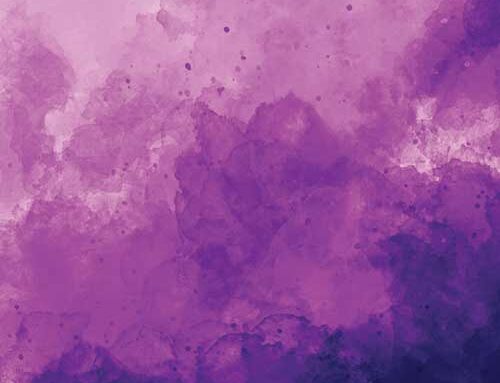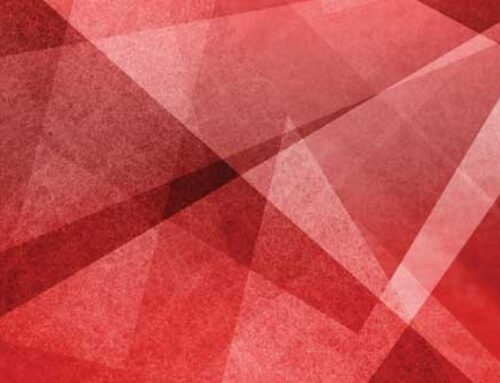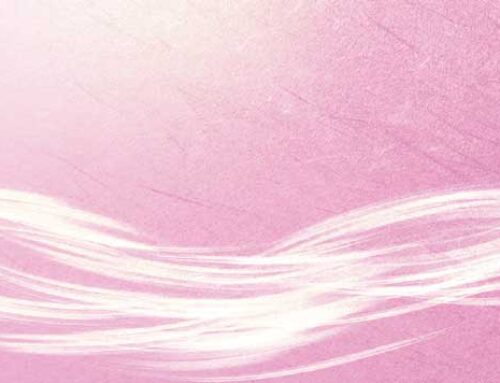by Anna Bokarius, BA, MD Candidate; Khanh Ha, MD; Russell Poland, PhD; Vladimir Bokarius, MD, PhD; Mark H. Rapaport, MD; and Waguih William IsHak, MD, FAPA
All from Cedars-Sinai Medical Center, Department of Psychiatry and Behavioral Neurosciences, Los Angeles, California
Innov Clin Neurosci. 2011;8(9):20–23
Funding: There was no funding for the development and writing of this article.
Financial Disclosures: Dr. IsHak has received research support from NARSAD and Pfizer (monotherapy for major depression). Dr. Rapaport has received research support from NIMH and NCCAM, is a consultant for Wyeth, NIMH, Dainippon-Sumitomo, Brain Cells, Inc., Astellas Pharma, Pfizer, Takeda Pharmaceuticals, and is on the DSMB at Quintiles (for an Astra Zeneca Protocol). Ms. Bokarius, and Drs. Ha, Poland, and Bokarius report no competing interests.
Key Words: Humor, depression, depressive symptoms, humor disposition, attitude toward humor
Abstract: Objective: This study measures the correlation between disposition to humor and level of depression to investigate openness to humorous interventions for the treatment of depression.
Design, Participants, and Measurement: Individuals (n=200) with depression received questionnaires to assess their sense of humor and attitude toward humor using the Svebak’s Humor Questionnaire and a disposition toward humor questionnaire. The correlation between Svebak’s Humor Questionnaire scores and Quick Inventory of Depressive Symptomatology-Self Report scores was then measured. Results were further analyzed by race, age, and gender to assess any emerging trends within those groups.
Results: Svebak’s Humor Questionnaire mean scores remained high across gender, race, and age. However, there was not a statistically significant correlation between the level of depression and sense of humor (r=-0.22). The only significant relationship noted was between disposition toward humor and depression was for subjects aged 70 and older (r=-0.83).
Conclusion: Though with certain limitations, these data provide preliminary support for the possibility that an appreciation of humor would persist despite symptoms of major depressive disorder. Clinicians could consider humor as part of an intervention in the treatment of depressive symptoms. The determination of the type of humor and manner of integrating it into therapy would require further study.
Introduction
Over the past few decades, humor has been proposed to have positive health benefits using the theme, “Laughter is the best medicine.” Humor has been utilized in dentistry, oncolgy, cardiology, and in psychiatry.[1,2] Its use in depression, dementia, and serious mental illness has been tried in individual, group, and family psychotherapy in inpatient, partial hospitalization, and outpatient settings.[1,2] Humor has been shown to help reduce stress and anxiety, prompting an interest in humor as a possible intervention to treat depression. Several papers discuss the effects of humor on depression. Most of these reports are theoretical works rather than data based.[3–6] Some authors worry that humor would represent or could be construed as a potential minimization of suffering by the therapist, rather than a method of easing the patient’s anxiety and helping him or her overcome depression. They believe that the use of humor may be a way of masking the therapist’s feelings, and that “canned jokes” would not be therapeutic.[4–6] On the other hand, some authors have claimed that humor alleviates depression and that depressed patients may be taught to appreciate humor to help with pessimism and emotional detachment.[7] It has been suggested that evaluating the effects of humor on depression may be complicated by personality styles of patients, which may cause patients to reject or misinterpret a therapist’s humor-based intervention.[8] The content of the humor-based intervention may constitute another variable that needs to be explored: For example, depressed patients seem to enjoy situational, but not hostile humor.[9] The American Association for Therapeutic Humor supports the use of humor as a treatment method; however, no significant scientific data on this topic have been published.[10] The possibility of employing humor as part of a treatment approach for patients with major depressive disorder (MDD) requires significant, rigorous research.
Researchers have acknowledged the need to develop empirical-based studies to investigate the immediate long-term effects of humor.[11] In one study conducted with healthy student volunteers, it was reported that participants preferred nonhumorous interventions to humorous ones.12 To our knowledge, no such studies have been carried out in subjects with MDD, but we believe that the first step is to assess the preferences of patients with MDD and their dispositions toward humor as an adjunct to their treatment plans. By surveying the preferences of depressed patients, we can begin to determine whether more extensive research on the clinical use of humor in treating depression is warranted. To address the lack of reliable data, we administered a questionnaire to assess the disposition toward humor in the outpatient psychiatric clinic and correlated results with the level of depression. Based on the extant literature, we postulated that an appreciation of humor would persist despite symptoms of MDD.
METHODS
Sample. Consecutive treatment-seeking outpatients were recruited during assessment at the Outpatient Psychiatric Department of Cedars-Sinai Medical Center. Eligible were adults 18 years of age or older with a primary current diagnosis of MDD and a Quick Inventory of Depressive Symptomatology-Self-Report (QIDS-SR)[13] score 5 or more. Subjects with MDD were excluded if they met criteria for mental retardation or dementia. We planned to include 200 subjects in this study. Study procedures were approved by the Institutional Review Board at Cedars-Sinai Medical Center. All study participants signed a written informed consent with a physician investigator prior to participation.
Procedure. Study participants received the regular initial psychiatric assessment work-up, which included demographic information, the QIDS-SR, and a structured interview using the Mini-International Neuropsychiatric Interview (MINI).[14] In addition, subjects were asked to complete a short questionnaire regarding their views on humor.
Measures. Psychiatric assessment was performed using the MINI and depression symptom severity was measured with the QIDS-SR. Svebak’s Sense-of-Humor Questionnaire (SHQ)[15] was used to assess whether an individual liked or disliked humor. The SHQ consists of three parameters: M, L, and E: M measures the perception of humorous messages, L assesses the individual’s perception of humorous situations, and E evaluates expression of humor. We also created an additional measure to assess the disposition toward humor (DTH) (Appendix 1). The DTH and SHQ were combined into one document so that the DTH was presented after the SHQ.
Statistical analyses. Statistical analyses were conducted using SAS, version 9.1.3 (SAS Institute, Cary, N.C.). The data were assessed for normality of distribution. Pearson correlation coefficients were calculated as a preliminary investigation of the relationship between MDD and humor.
RESULTS
Study sample. Two hundred subjects signed consent, underwent a structured interview using the MINI, and completed the QIDS-SR and SHQ/DTH questionnaires. The demographic characteristics are presented in Table 1.
The level of depression severity is presented in Figure 1. The QIDS-SR scores of our subjects ranged from 5 to 27. Of the 200 subjects, 68 were mildly depressed (QIDS score 5–10), 71 were moderately depressed (QIDS score 11–15), 43 were severely depressed (QIDS score 16–20), and 18 were extremely depressed (QIDS score 21–27). The mean QIDS-SR score was 13.6 and the standard deviation 5.3.
As presented in Table 2, there was no statistically significant correlation between disposition toward humor and depression, nor was there a statistically significant correlation between depression and any parameter of the SHQ. Although there was no correlation between disposition toward humor and the level of depression, the obtained SHQ scores appeared to be relatively high overall, as well as for each SHQ and DTH parameter. Table 2 summarizes the scores.
DISCUSSION
The concept of using humor as a part of a treatment for MDD has been of interest for many years. Since the 1980s, hundreds of references about employing humor in healthcare have been reported. Humor may enhance immune functioning,[16] aid in pain reduction,[17] help in stress and anxiety reduction,[1,2] and promote better general health.[18] Moran suggests that humor might facilitate tension relief, which may allow patients to be open to new interpretations of events; however, there are no rigorous studies to support this claim.[7]
Our study provides preliminary evidence that an appreciation of humor often persists despite symptoms of depression. A lack of correlation between disposition toward humor and depression suggests that MDD does not intrinsically alter one’s disposition toward humor. Regardless of the level of depression, the average SHQ parameter and total scores were rather high, at least 60.7 percent of the maximum possible. The high SHQ scores suggest a general positive disposition toward humor. This is supported by our preliminary research with the DTH where the sample had a mean score of 80.7 percent. We observed no strong correlation between humor and age, gender, or race/ethnicity. The only strong correlation observed was among subjects in their 70s and 80s who showed a marginally significant negative correlation between DTH and depression (r=-0.83), meaning that the older population may be less likely to accept humor in their treatment as a function of depression. However, there were only six subjects in that group, so a larger sample would be required to confirm this trend. It is interesting to note that despite gender, race, and age differences, the average SHQ score remained relatively constant, suggesting that sense of humor is a universal factor that transcends these major human differences.
Limitations. This study is limited by its use of a rarely employed scale: the SHQ. Moreover, our own DTH instrument lacks proper validation at this time. Other weaknesses include the use of self-report data, a relatively small subject pool, and a limited number of demographic measures (e.g., education and income were not assessed).
CONCLUSION
Despite acknowledged limitations, this study suggests that depressed subjects retain their sense of humor. The study findings support the basis for clinicians to consider humorous interventions, as many patients might appreciate humor being incorporated into their treatment at appropriate times. In future studies, we hope to begin exploring how to gather data characterizing the type of humor that individual patients could find appealing and may be therapeutic.
References
1. Dixon NF. Humor: a cognitive alternative to stress? In: Sarason I, Spielberger CD (eds). Stress and Anxiety. New York: Hemisphere;1980;281–289.
2. Gelkopf M. The use of humor in serious mental illness: a review. Evid Based Complement Alternat Med. 2009 Aug 17. [Epub ahead of print]
3. Saper B. Humor in psychotherapy: Is it good or bad for the client? Professional Psychology: Research and Practice. 1987;18:360–67.
4. Kubie L. The destructive potential of humor in psychotherapy. Am J Psychiatry. 1971;127:861–866.
5. Haig RA. Therapeutic uses of humor. Am J Psychother. 1986;40:543–553.
6. Killinger B. The place of humor in adult psychotherapy. In: Capman AJ, Foot HC (eds). It’s a Funny Thing, Humor. New York: Pergamon; 1976:153–156.
7. Moran CC. Short-term mood change, perceived funniness, and effect of humor stimuli. Behav Med. 1996;22(1):32–38.
8. Salameh WA. Humor in integrative short-term psychotherapy (ISTP). In: Fry WF Jr, Salameh WA (eds). Handbook of Humor and Psychotherapy: Advances in the Clinical Use of Humor. Sarasota, FL: Professional Resource Exchange; 1987:195–240.
9. Savell H. The effects of humor on depression in chronic emotionally disturbed adults. University of Mississippi. Unpublished Dissertation. 1983.
10. Franzini LR. Humor in therapy: the case for training therapists in its uses and risks. Gen Psychol. 2001;128(2):170–193.
11. Dimmer SA, Carroll JL, Wyatt GK. Uses of humor in psychotherapy. Psychologic Rep. 1990;66:795–801.
12. Rosenheim E, Golan MA. Patients’ reactions to humorous interventions in psychotherapy. Am J Psychother. 1986;40(1):110–124.
13. Rush AJ, Trivedi MH, Ibrahim HM, et al. The 16-item Quick Inventory of Depressive Symptomatology (QIDS) Clinician Rating (QIDS-C) and Self-Report (QIDS-SR): a psychometric evaluation in patients with chronic major depression. Biologic Psychiatry. 2003;54:573–583.
14. Sheehan DV, Lecrubier Y, Sheehan KH, et al. The Mini-International Neuropsychiatric Interview (M.I.N.I.): the development and validation of a structured diagnostic psychiatric interview for DSM-IV and ICD-10. J Clin Psychiatry. 1998;59(Suppl 20):22–33;quiz 34-57.
15. Svebak S. Revised questionnaire on the sense of humor. Scand J Psychol. 1974;15:328–331.
16. Dillon KN, Minchoff B, Baker KH. Positive emotional states and enhancement of the immune system. Int J Psychiatry Med. 1986;15:13–18.
17. Adams ER, McGuire FA. Is laughter the best medicine? a study of humor on perceived pain and affect. Adaptation and Aging. 1986;8(3-4):157–175.
18. Carroll JL. The relationship between humor appreciation and perceived physical health. Psychology: A Journal of Human Behavior. 1990;27:34–37.






